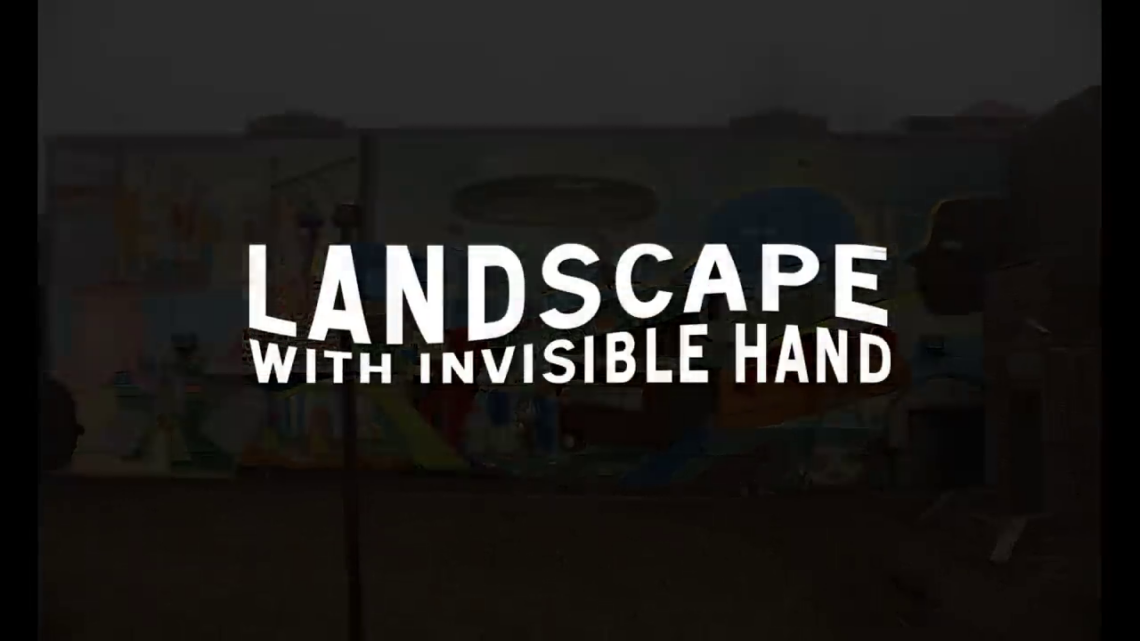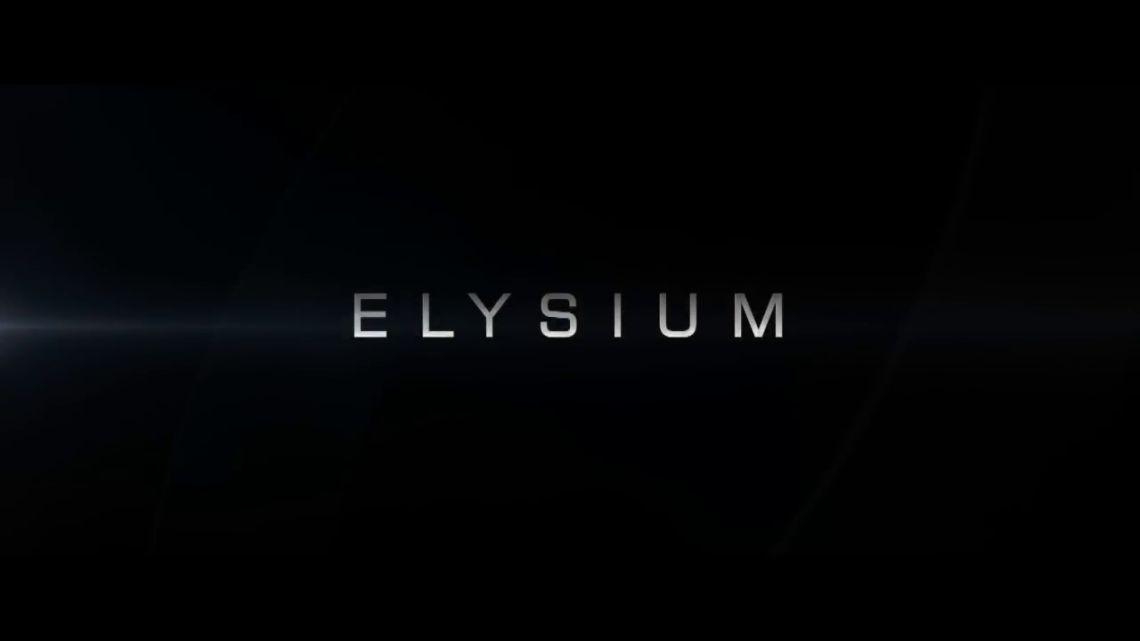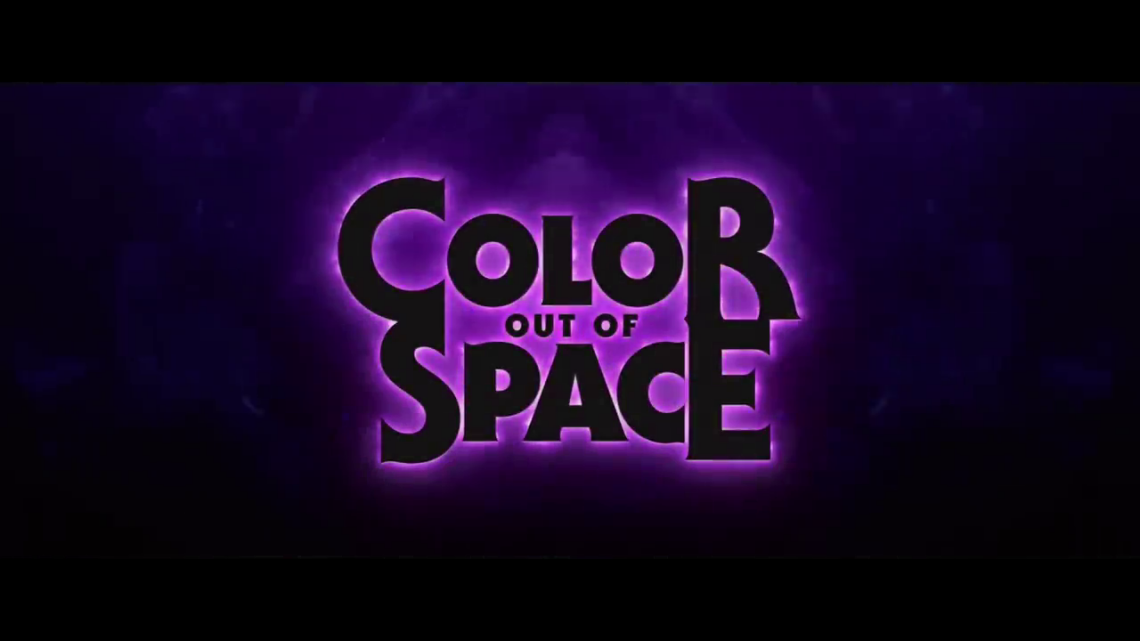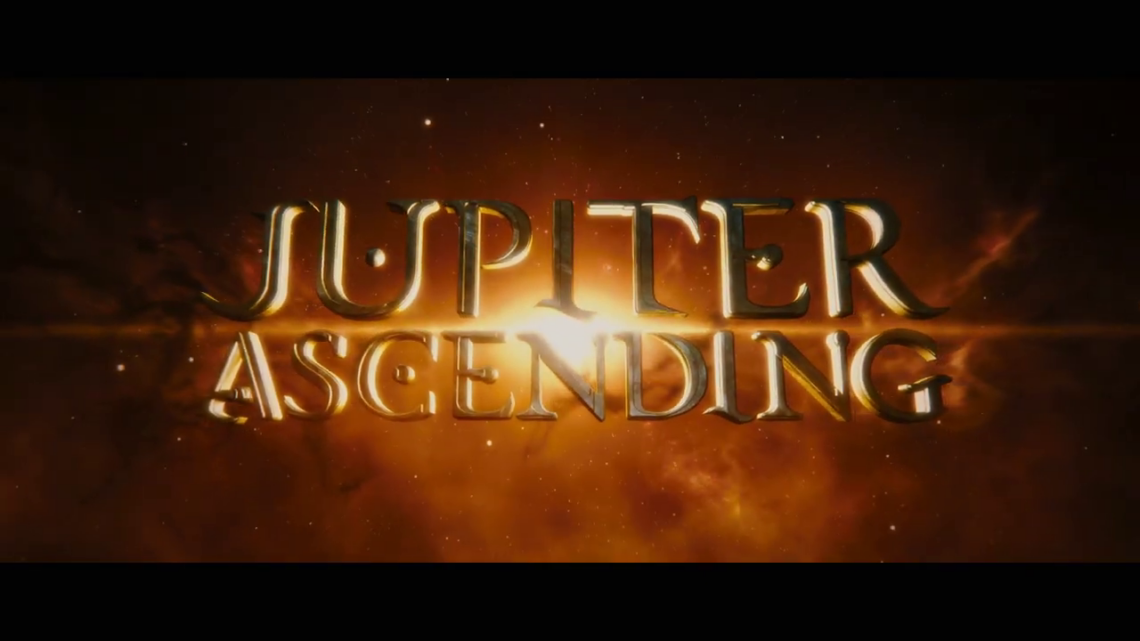-
#654 – Landscape with Invisible Hand (2023)
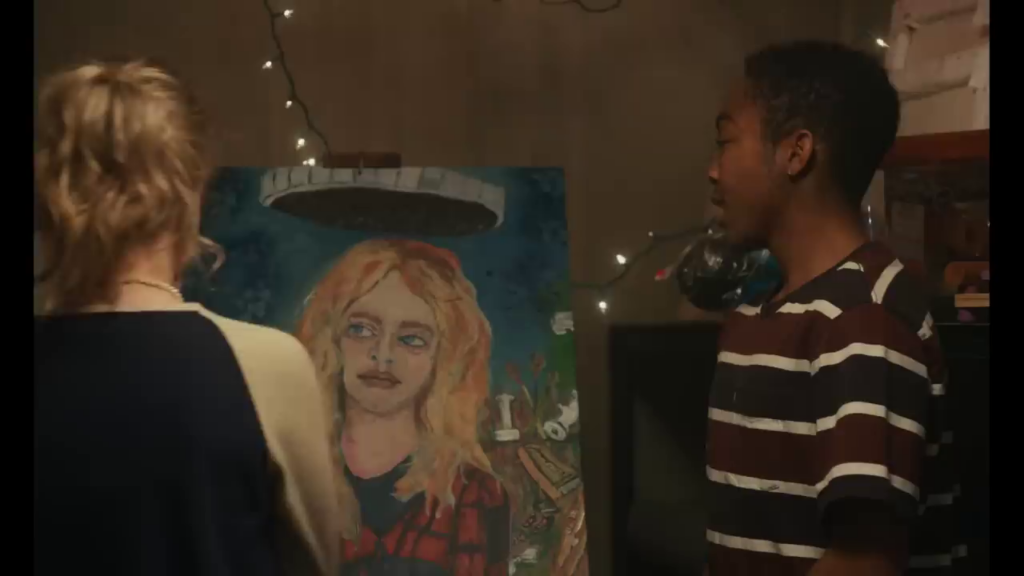
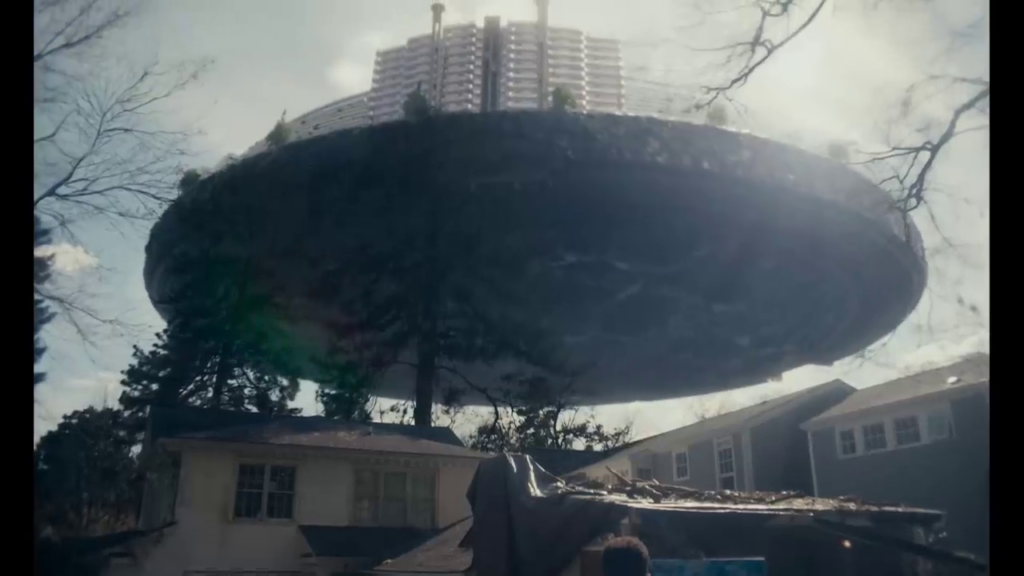
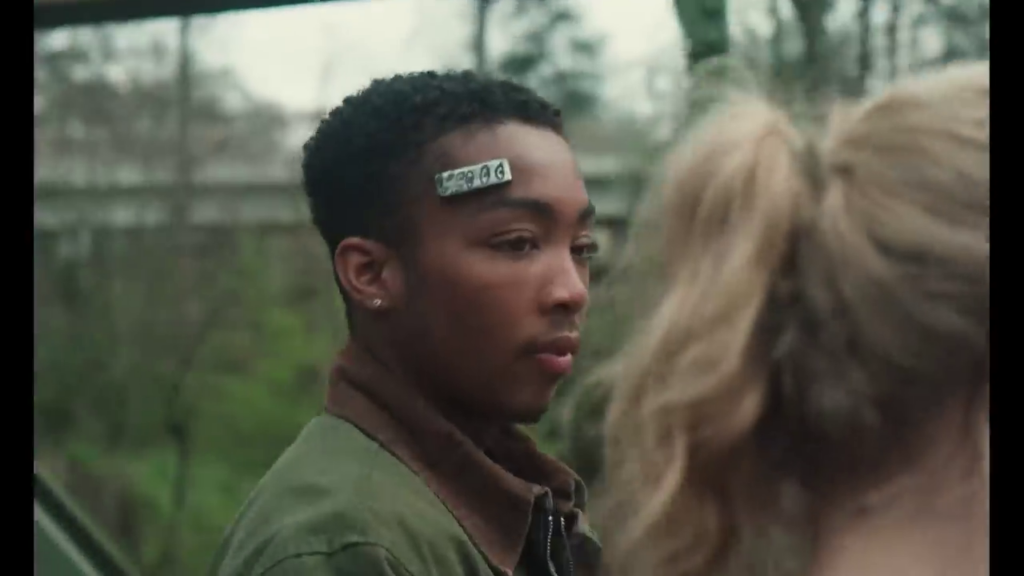
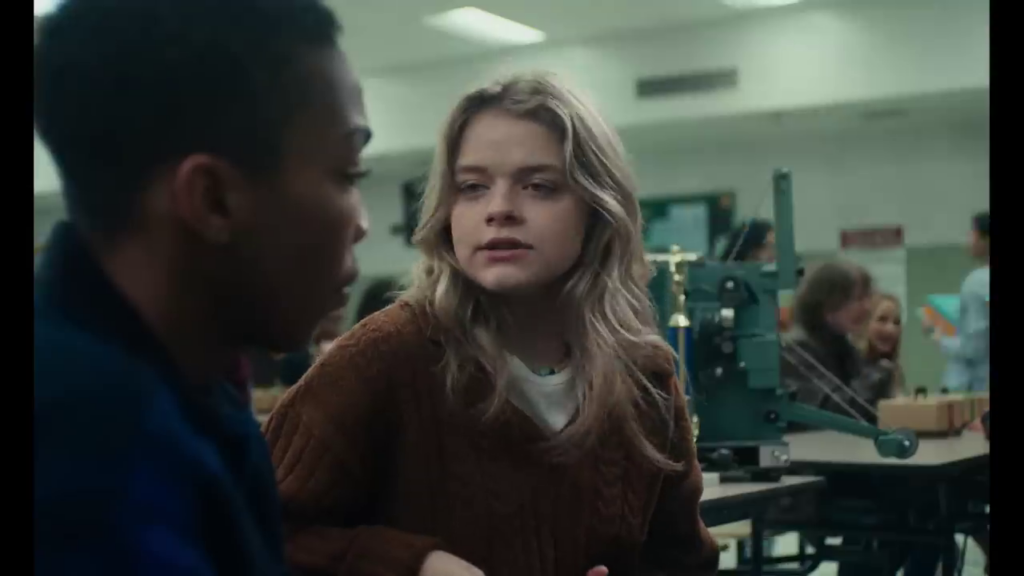
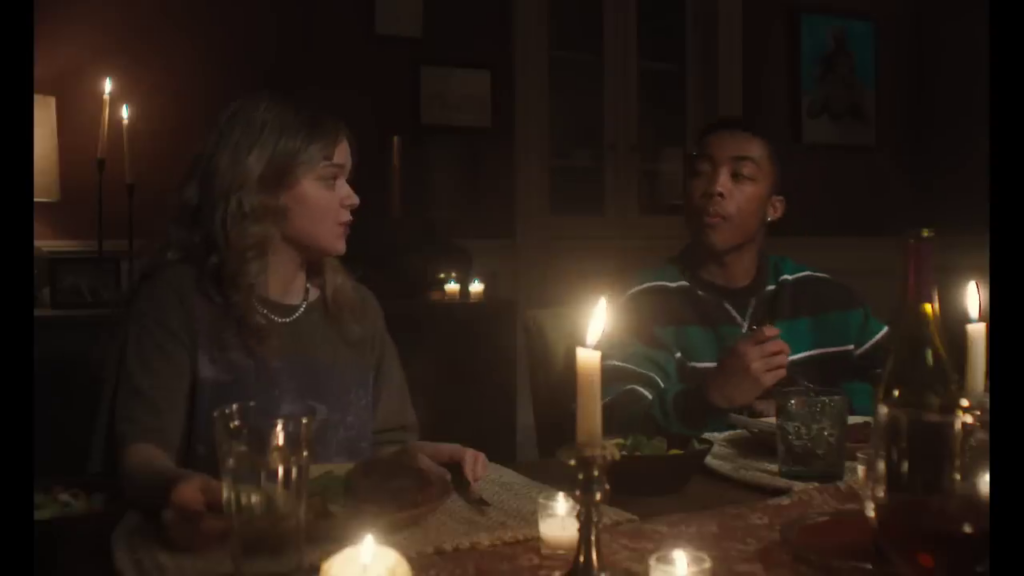
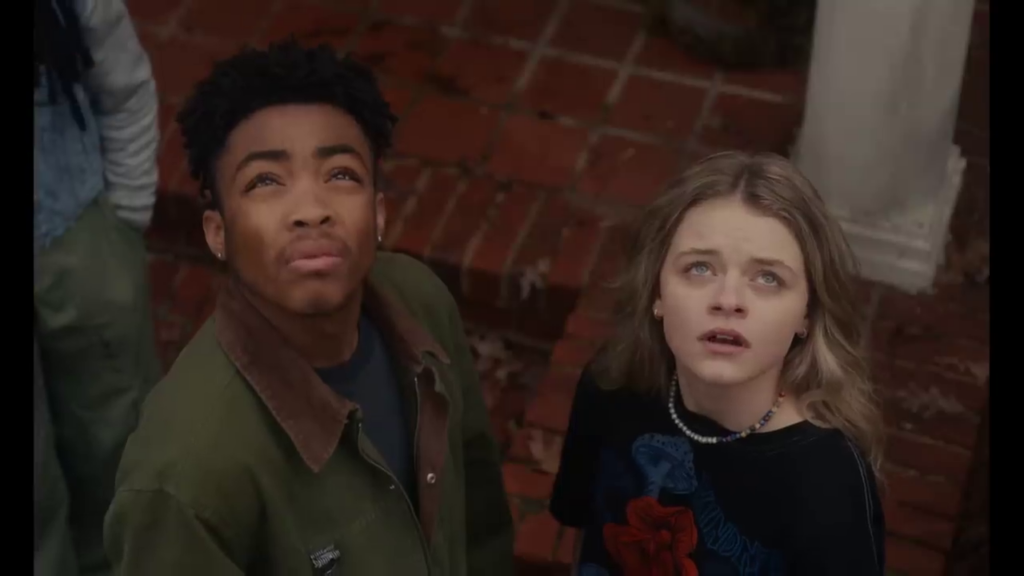
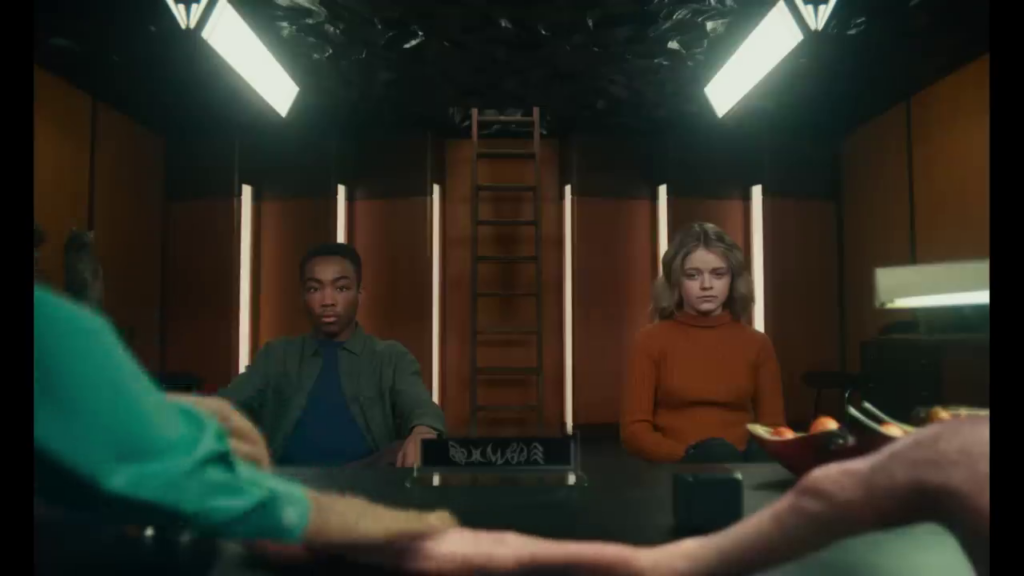
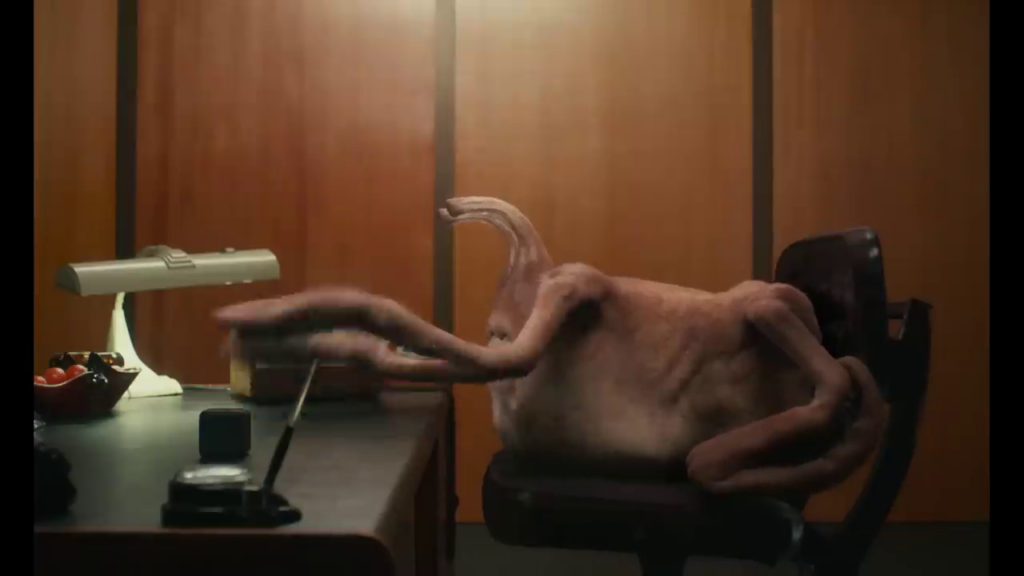
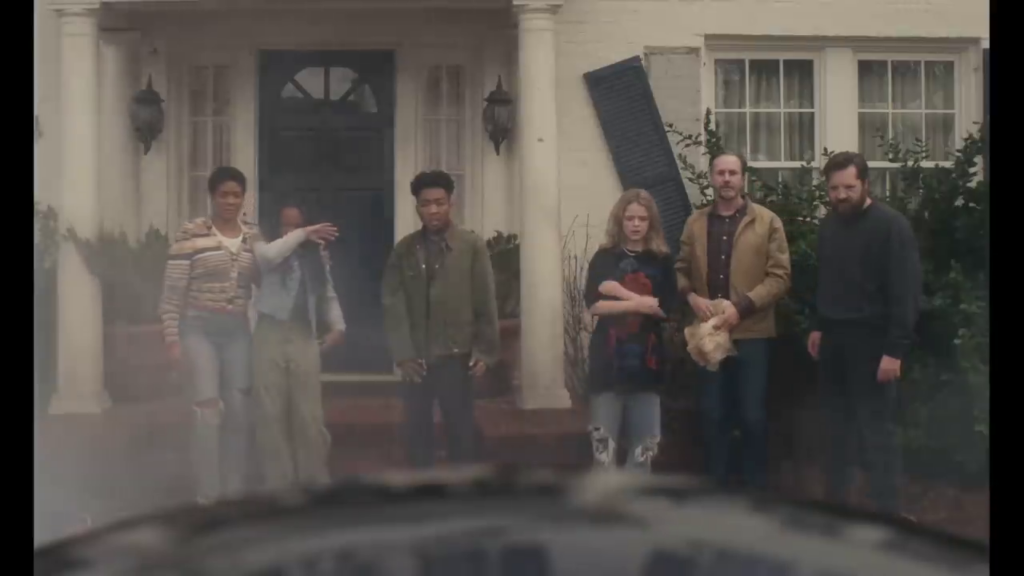
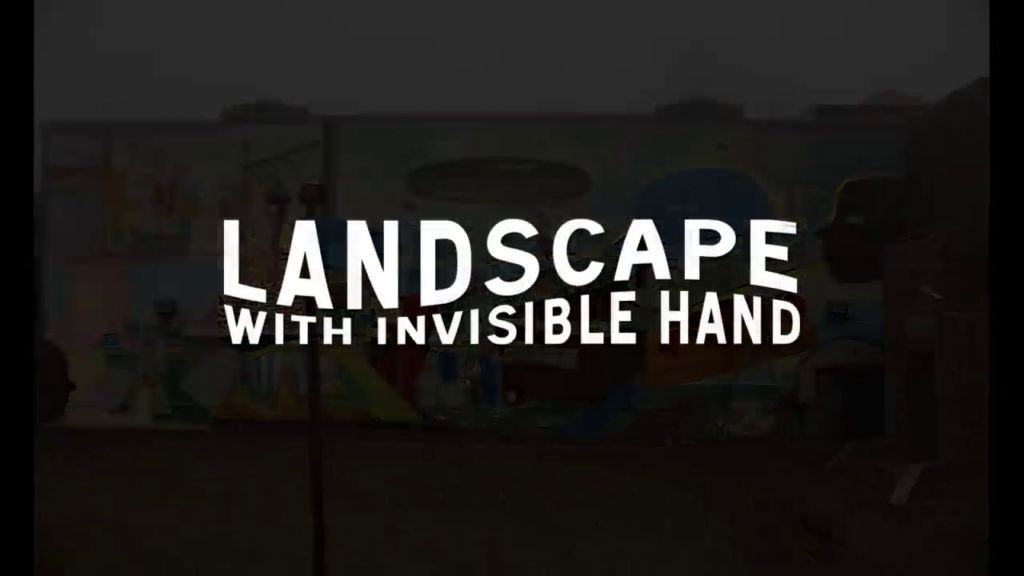
Landscape with Invisible Hand (2023)
Film review #653
Director: Corey Finley
SYNOPSIS: In the year 2036, an alien race called the Vuvv has caused mass unemployment and homelessness across the planet, as their advanced technology has rendered most human jobs obsolete. Adam meets a new girl at his school named Chloe, who has just moved there and is living out of the family’s car since they have no money. As Adam and Chloe start to get close. They decide to make money by broadcasting their relationship to the Vuvv, who have a fascination with human romance. They start to earn money to live as their broadcast becomes popular, but the strain on their relationship starts to affect their broadcast, leading to an uncomfortable confrontation with the Vuvv…
THOUGHTS/ANALYSIS: Landscape with Invisible Hand is a 2023 sci-fi film based on the novel of the same name by M.T. Anderson. Set in the year 2036, when an alien race named the Vuvv have made most human jobs obsolete with their advanced technology, leading to mass unemployment and homelessness. High school couple Adam and Chloe decide to try and make money by live broadcasting their relationship by using headsets that show their point of view, as the aliens have nothing like romance in their culture, and see it as a bit of a novelty. As time goes on however, the pressure of their personal lives being on show puts a strain on the pairs relationship. This premise of the film is a fairly solid one, is simple to grasp, and opens up its world to a satirical look at the human cost to a ‘peaceful’ alien invasion. You can easily fill a film with this plot and explore its implications, which the film does…but it doesn’t stop there sadly. This plot essentially takes up the first third of the film, but evolves into something else entirely, as the film takes a three-act structure and almost completely changes the focus of the plot: when Adam and Chloe’s relationship suffers because of having to broadcast everything, they are sued for ‘faking’ their relationship; leading to a compromise where a Vuvv moves in with them to try and experience ‘real’ family life that they have seen in Tv shows. Then after that, we get Adam’s arc as an artist come to the forefront, as the Vuvv want to exhibit and reproduce his art, again without any idea of what actually means in human culture. These ideas are good enough, but together in the same film, they form a mish-mash of ideas and themes that start and stop, without either the depth required to fully explore them, or a resolution before the film moves onto the next thing. Nothing really adds up; it’s just an exploration of the world and its themes that fails to progress towards anything. This culminates in the film just ending with nothing having been accomplished: nobody really learns anything, the world hasn’t changed for better or worse, it just…goes on, I suppose.
As mentioned, the film takes a satirical tone, poking fun at typical sci-fi concepts and how banal this alien conquest has been brought about not by conquest or military might, but by businesses and capitalism seeing an opportunity to make profit. The banality of this conquest seeps down into every facet of the film, with the characters muddling along with their daily lives, just with giant alien ships floating above them occasionally. It keeps a lighthearted and quirky tone throughout, but still has powerful moments that emphasise the situation humanity is now living under. For example, the opening scene concludes with Adam and Chloe’s teacher shooting and killing himself because his job has been taken over by Vuvv technology. Moments like this are powerful, but are quickly forgotten about as the film bounces along and whips up another mix of ideas and perspectives to try and congeal them into a structured critique.
The characters are a mixed bunch, but are mostly portrayed well. Nothing in the script really hits a strong emotional high, and as mentioned, it’s kept satirical and quirky, which hinders something a bit deeper developing without a tighter, cohesive story. Landscape with Invisible Hand has an understanding of it’s subject and what it wants to do, but that aim is often lost amidst it trying to do far too much, without brining unfinished ideas and relationships forward as the film progresses. As such, it is a jumble of ideas that occasionally hits the mark, but too often spreads itself too thin.
-
#653 – Elysium (2013)
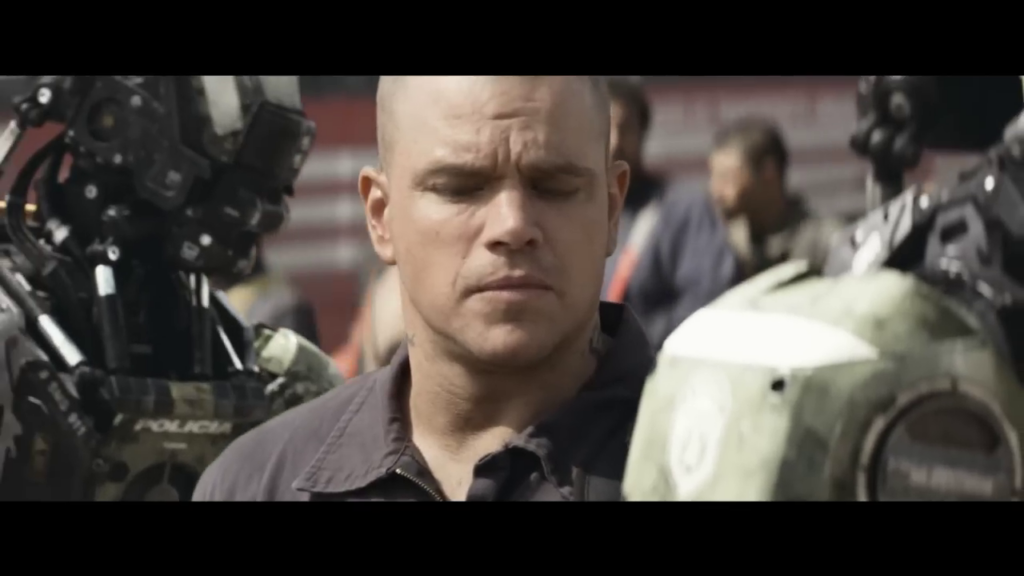
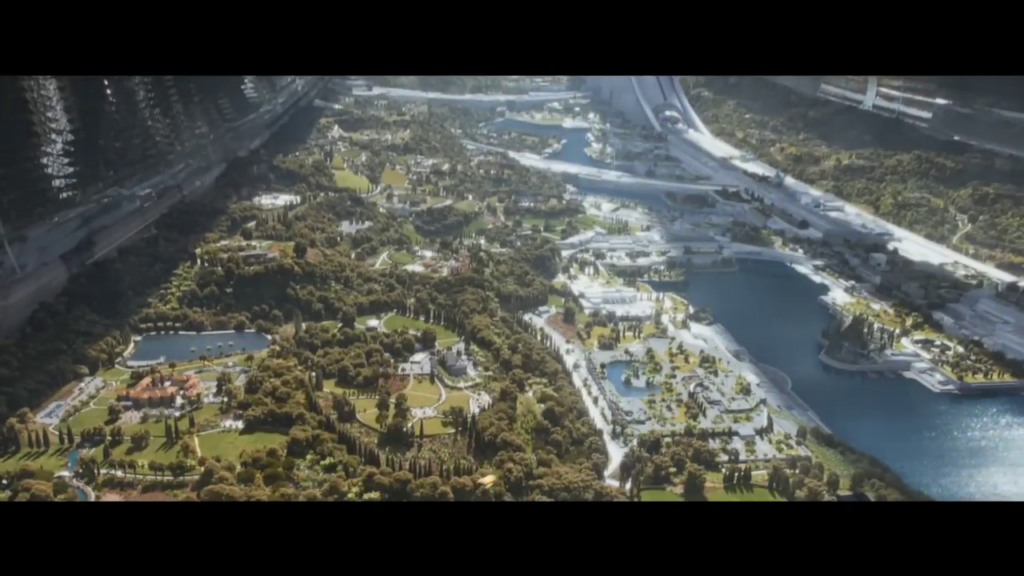
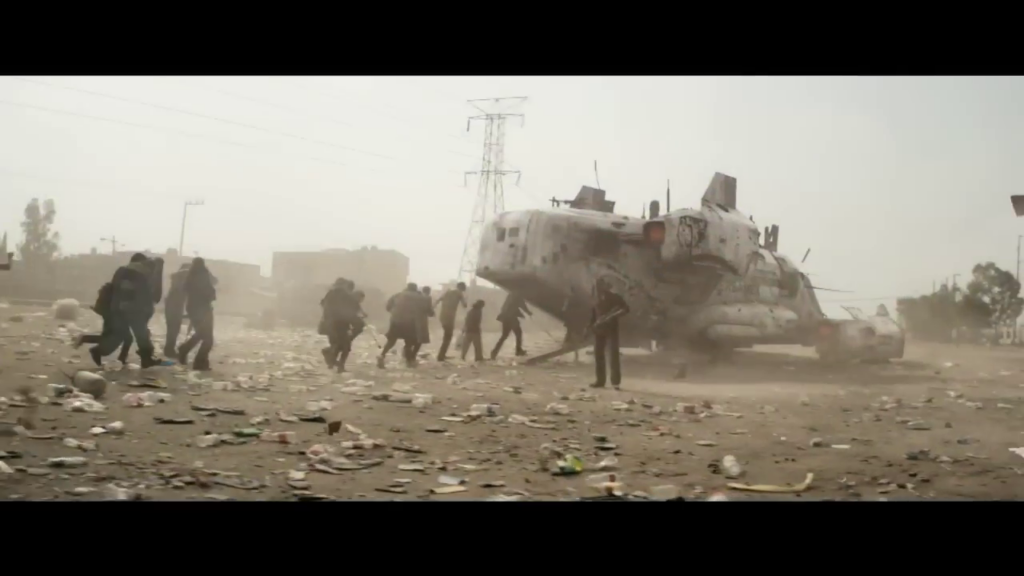
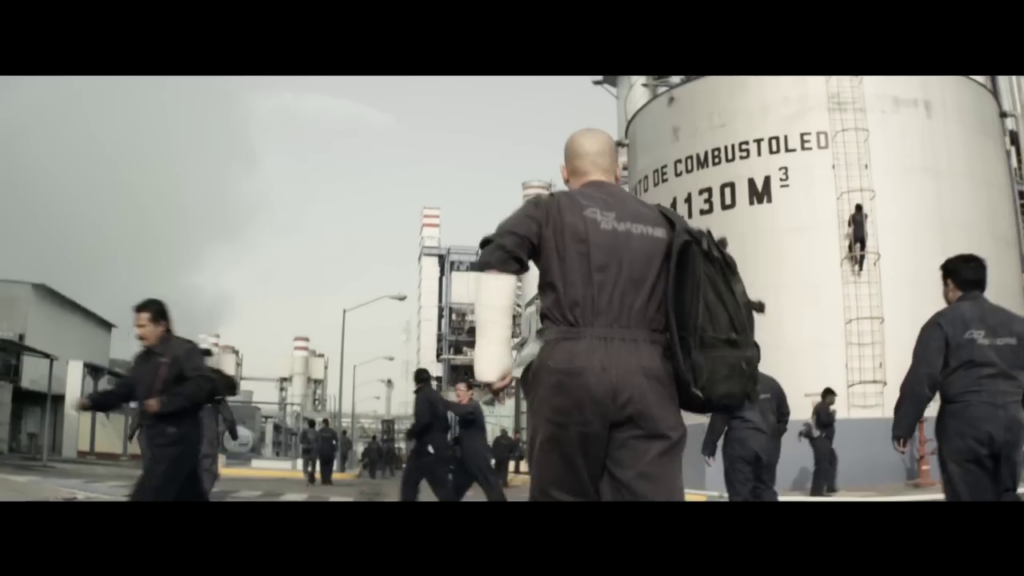
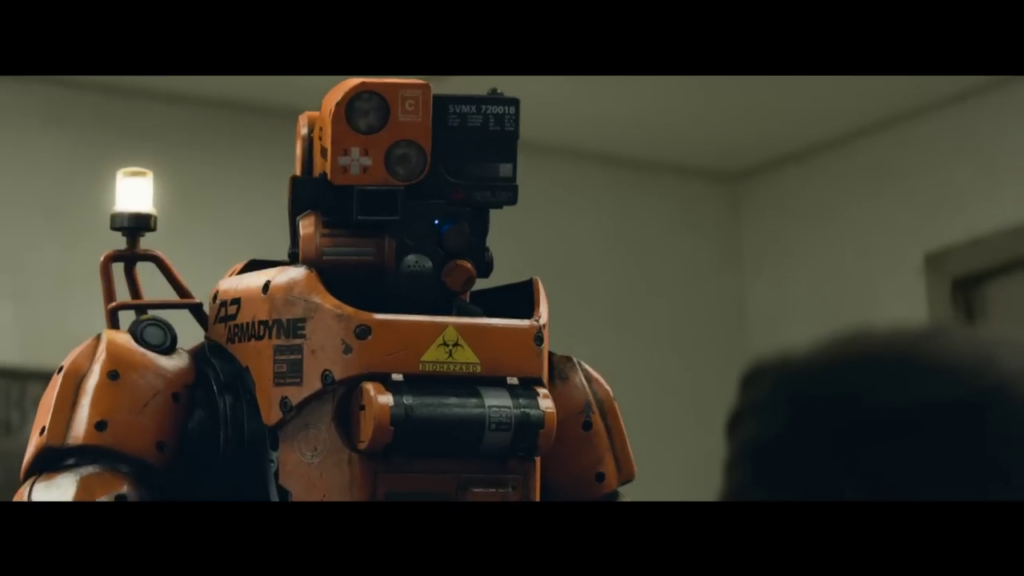
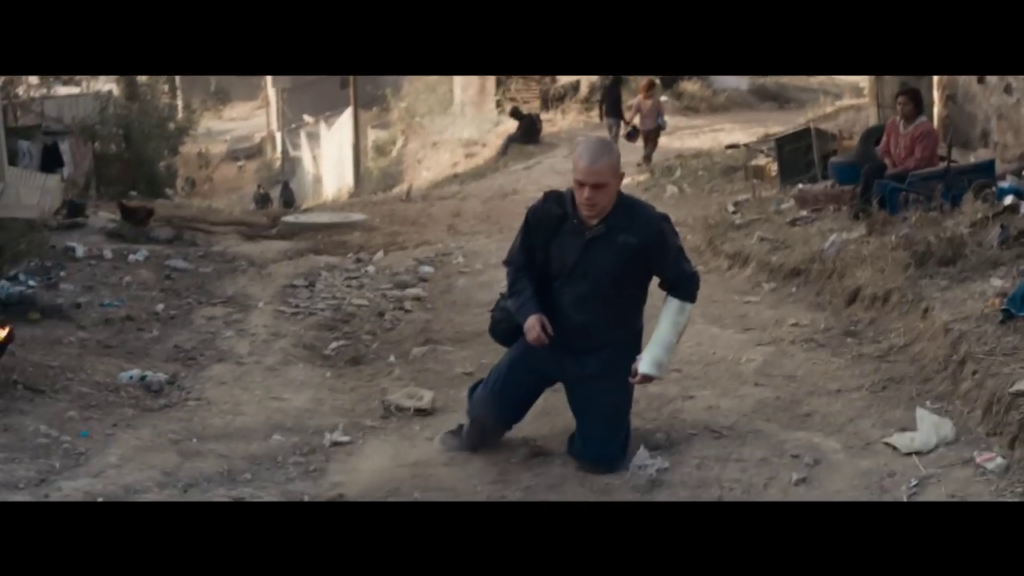
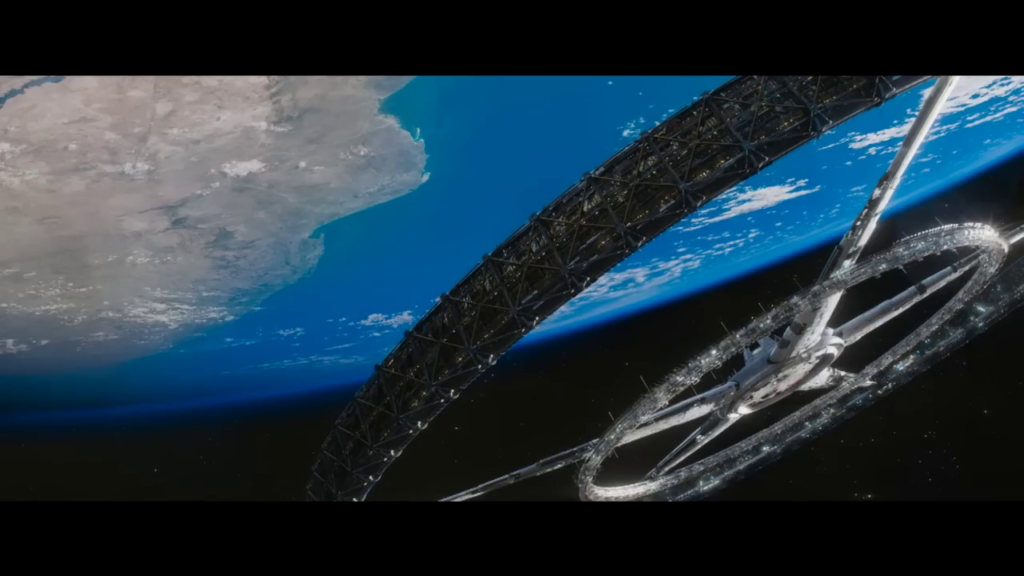
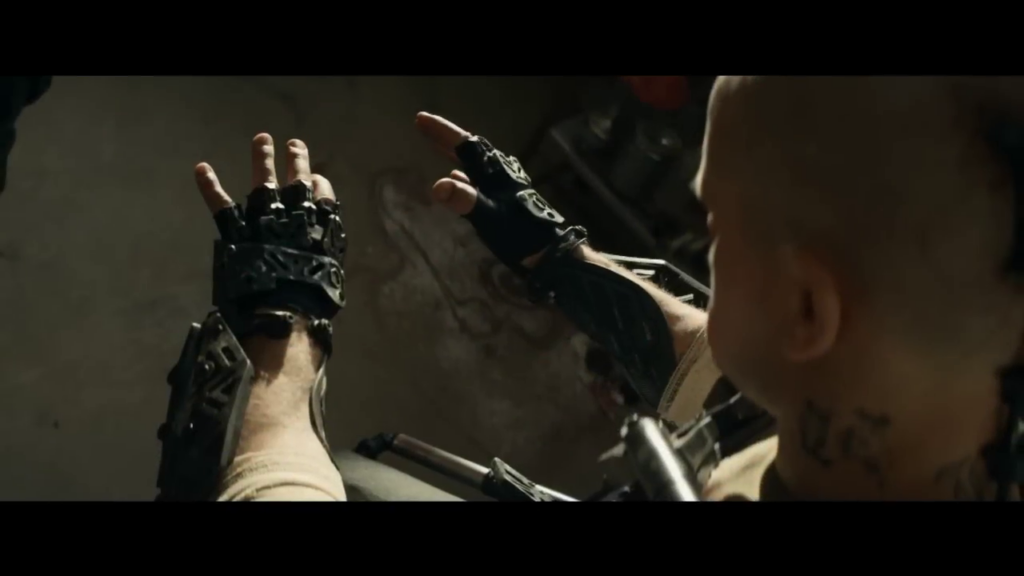
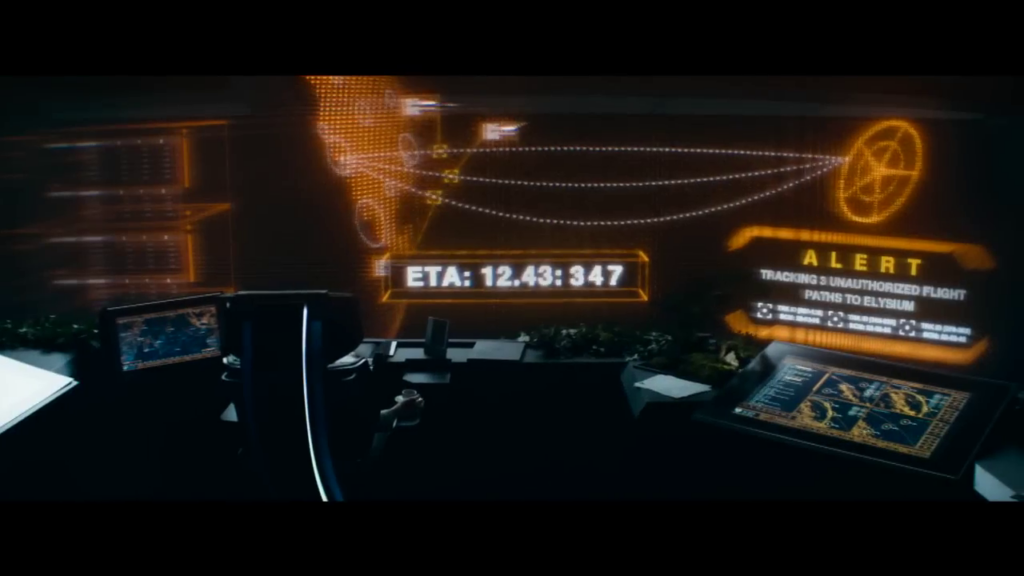
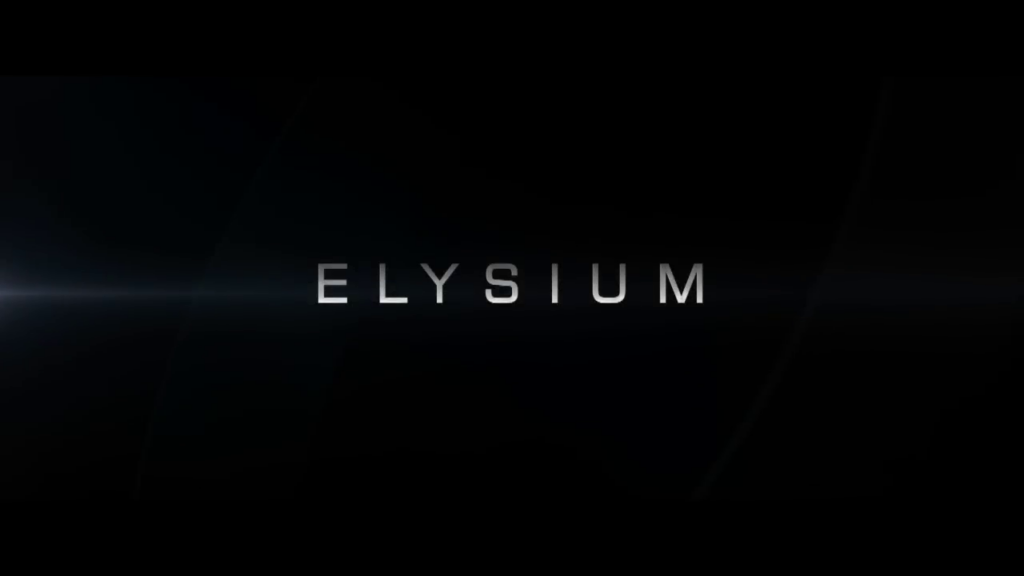
Elysium (2013)
Film review #653
Director: Neil Blomkamp
SYNOPSIS: In a future where the rich and wealthy have escaped an overpopulated and polluted earth to live on a luxurious space station orbiting the planet, Max da Costa is attempting to survive on the surface. When an accident at work leaves him exposed to lethal radiation and only a few days to live, Max decides to team up with an old criminal acquaintance to infiltrate Elysium and access the medical facilities there…
THOUGHTS/ANALYSIS: Elysium is a 2013 sci-fi film. Set in the year 2154, where the earth is overpopulated and polluted, Max Da Costa (Matt Damon) is exposed to lethal radiation at a job, and is given only a few days to live. With the only way to cure himself on board the space station Elysium, where the rich and powerful live in luxury, he teams up with a hacker and an old friend in order to find a way up there and cure himself. The plot of the film is, at its core, very predictable: all of the pieces and characters motives fit together and progress in the exact way you expect. Not entirely a bad thing, as it makes the film flow nicely, but you can’t help but feel there’s something more that could have been done with it. As it is though, it’s all fairly self-contained and entertaining enough, with the film being tied together with some strong action scenes and energetic fights. The concept of a divide between the poor on the planet and the rich in the space station above is a fairly simple one to grasp, and doesn’t need any real explanations to grasp it as the underpinning of the story.
If the film looks or seems familiar in any way, then perhaps you’re remembering the 2009 film District 9. This is not coincidental, as Neil Blomkamp directed both films, and clearly brings a shared vision of a ruined earth for both films. Even one of the villains in Elysium, Kruger, is played by the lead actor from District 9 (Sharlto Copley). The two are different films, but there’s a lot of similarities that inevitably draw comparison. Whereas District 9 dived deep into it’s themes and explore issues of discrimination amidst an alien invasion, Elysium really struggles to get it’s theme of extreme class divide in the same way. Even Blomkamp himself admits he didn’t get it across in the way he intended to. As mentioned, the film’s action and energy is decent, and the plot flows nicely; it’s just that any further depth into it’s themes never really grab the viewer’s attention.
The imagery of a dilapidated earth are rendered well, with plenty of dirt and grime that highlights the conditions on the planet. In contrast, Elysium has a more utopian aesthetic, combined with the more futuristic setting of the rotating space station. Max as a character feels deeply underdeveloped, as his only motive is to get to Elysium to cure himself, and lacks any other thoughts on what is going on around him. It makes sense, sure, that he is only focused on staying alive, but it does leave a hole at the centre of the film that ties the main character to the various machinations around him. Overall, Elysium is a perfectly serviceable action film with a clearly defined story and setting. In terms of bringing the themes behind the story. the film fails to do so in any meaningful way, and draws inevitable comparisons to the director’s former work, which did it much better in District 9. Not a bad film by any means, but clearly doesn’t fulfil the vision laid out for it.
-
#652 – Color Out of Space (2019)
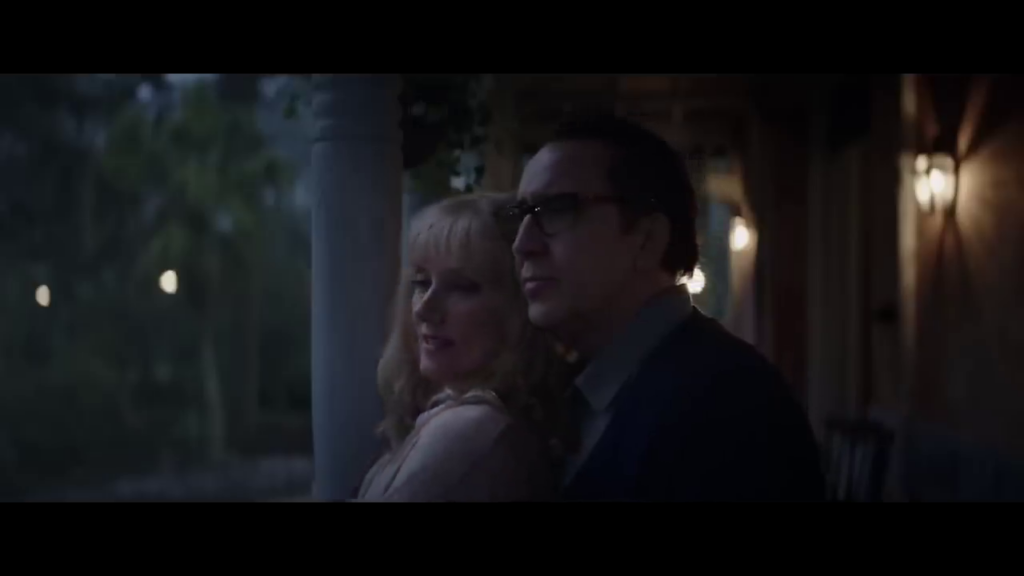
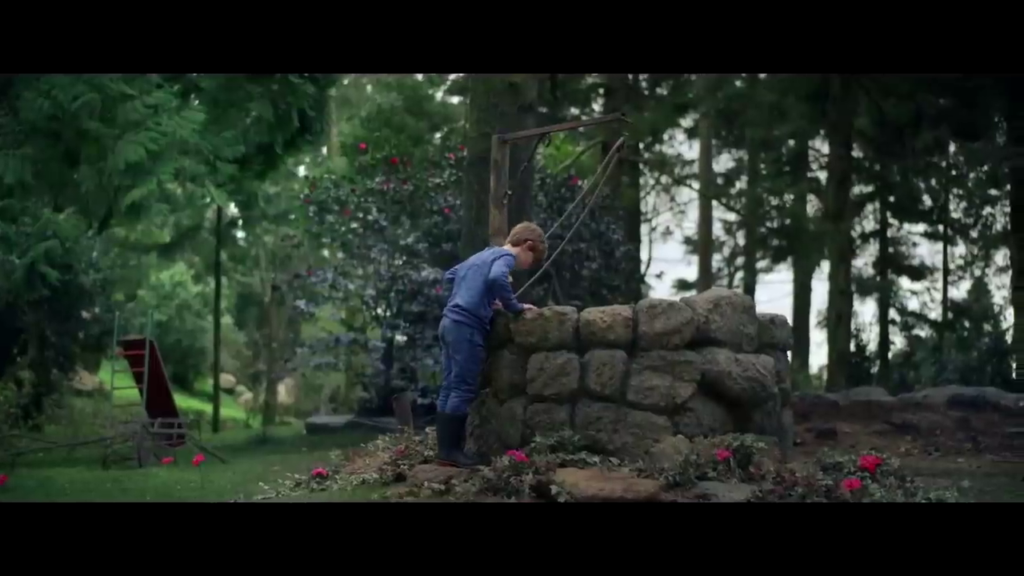
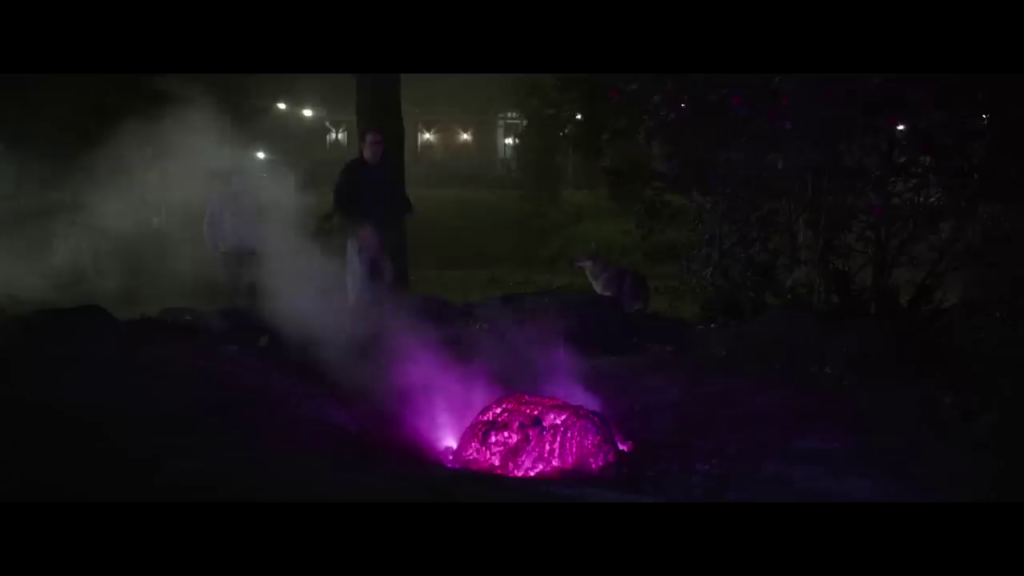
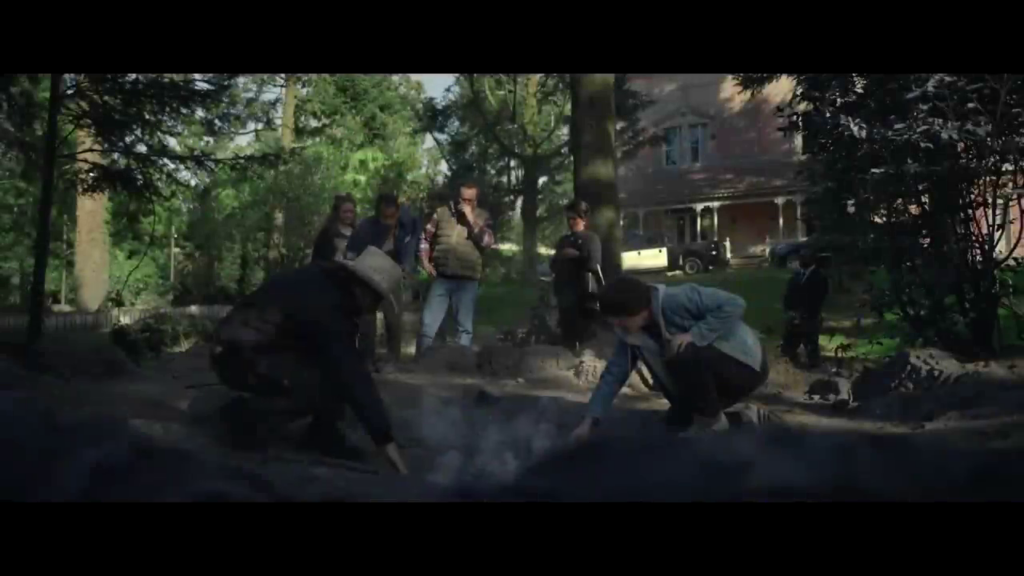
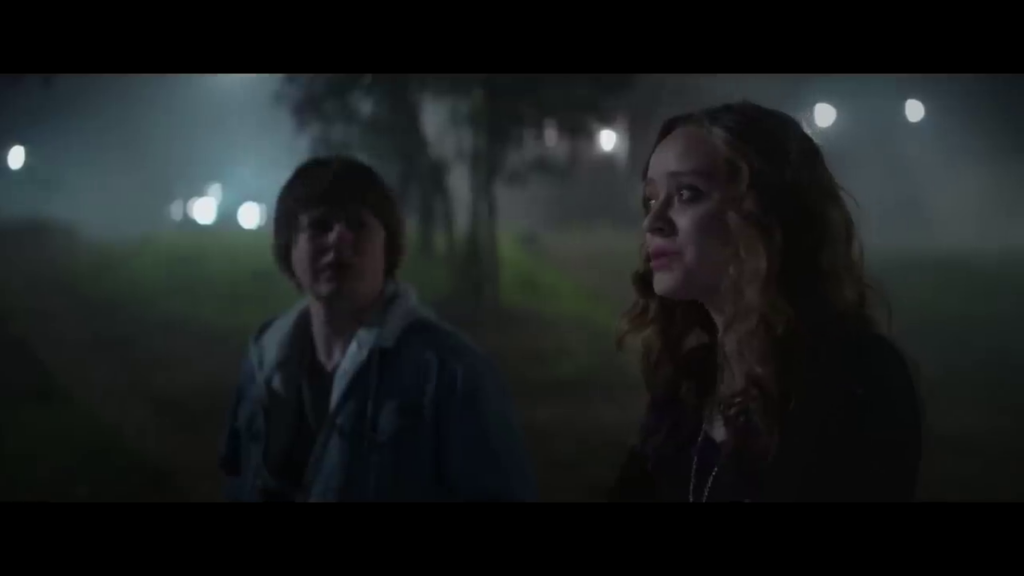
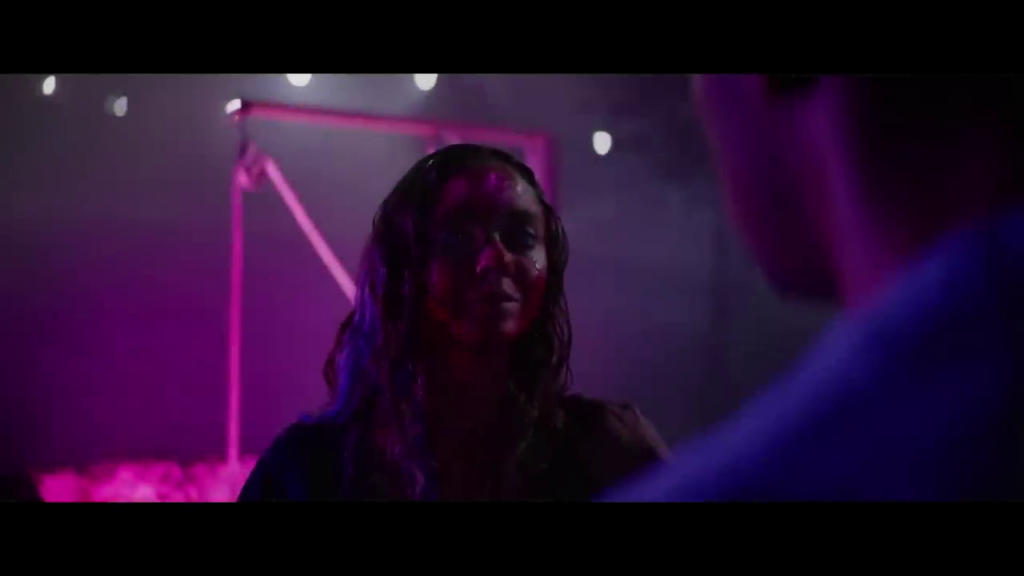
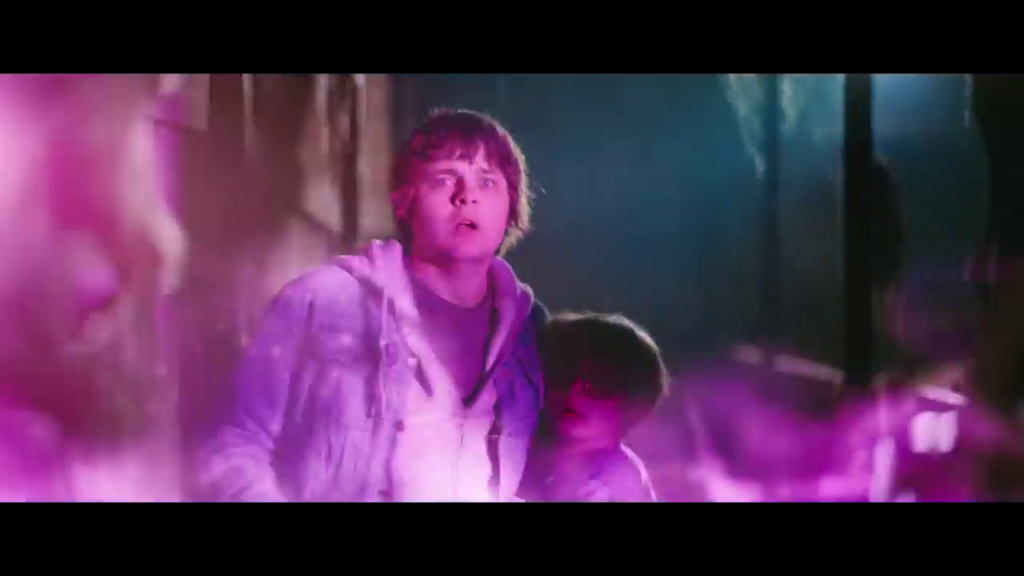
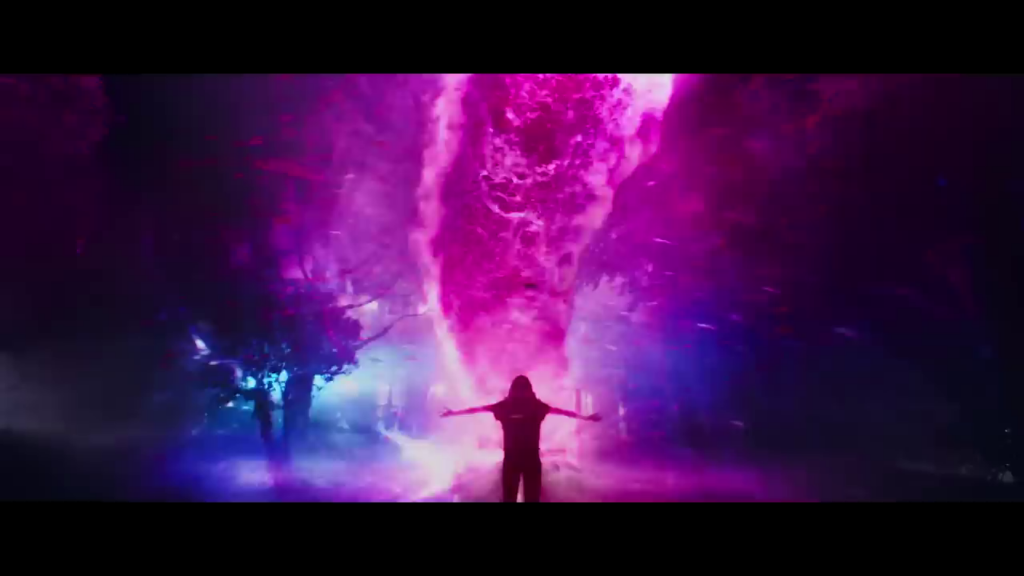
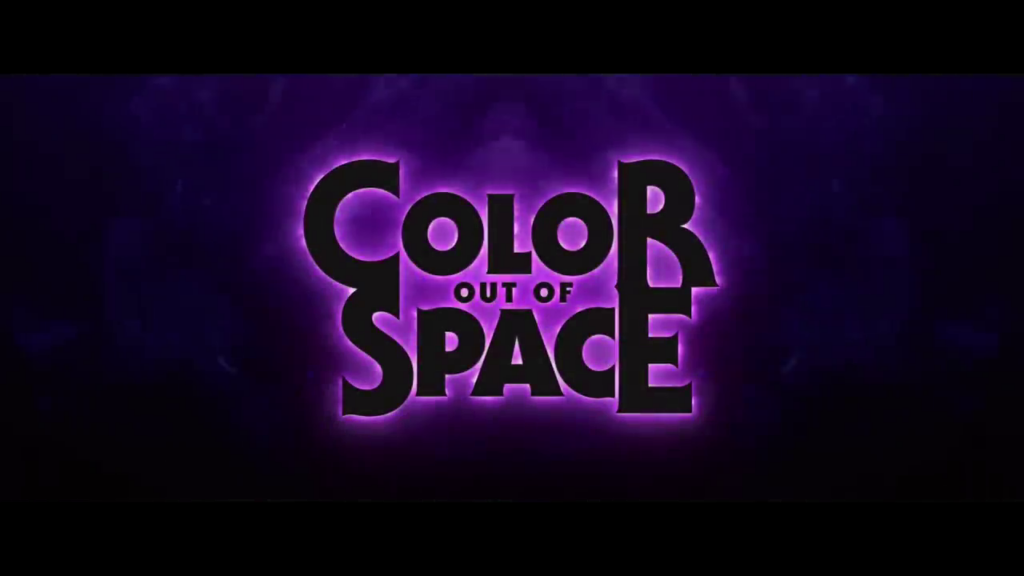
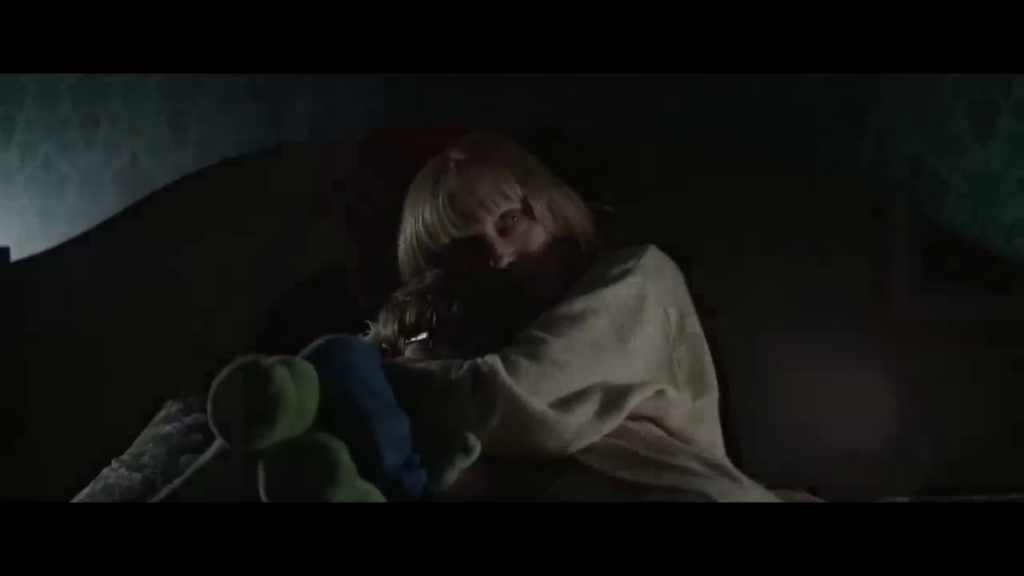
Color Out of Space (2019)
Film review #652
Director: Richard Stanley
SYNOPSIS: Nathan Gardner moves his family to a remote farm after his Wife’s cancer surgery. One night, a strange meteorite crashes near their home, exhibiting a strange colour. Over the coming days, the family begin to experience strange events that leave them bemused and suffering as their reality slowly unravels…
THOUGHTS/ANALYSIS: Color Out of Space is a 2019 film based on H.P. Lovecraft’s The Color Out of Space. Retold in a modern setting, the film follows Nathan Gardner (Nicholas Cage) moving his family to his late Father’s farm after his Wife’s successful surgery. A meteorite crashes near the house and starts to affect everything around it, leaving the family to try and survive the psychological nightmare they are in. As the minds of the family members unravel due to the warping of reality around them, we are subjected to a host of horrors and strange events, combining gruesome body horror reminiscent of The Thing with the psychological unravelling of the inhabitants of the house. With both of these themes swirling around, there is a lot going on in the film that assaults the senses from multiple directions. I did feel that the film didn’t really flow and progress in a natural way as reality slowly degraded, but you could argue that was the point. The film doesn’t really lead anywhere, and the characters are mostly left to be subjected to the meteorite’s bizarre influences, which again, you can argue is the point. The otherworldly use of colour is pretty cool at points, but I can’t help but feel it had a lot more potential in wrapping itself round the events that happen throughout.
Another thing which might either help or hinder your enjoyment of this film is the acting: the characters all have their own quibbles and quirks that come out when things get weird, but there’s no real character arcs to get stuck into. Nicholas Cage brings his typical unhinged acting into his role as his character slowly unravels, and you might find this distracting or appropriate considering the weirdness that’s going on. The family rarely act like a family given their disparate characters, and it doesn’t really come together on that point. There’s hints about the past of some of the characters and their trauma, but it’s never fleshed out or dealt with. The other characters, such as hydrologist Ward and squatter Ezra (Tommy Chong) are quite nebulous and only really serve exposition or an outsider narrative view.
There’s definitely an attempt put in to capture the weirdness and otherworldly aspect of a Lovecraft story. Color Out of Space does its own interpretation, blending psychological horror with physical gore that is made very well, and showed off just enough to capture the imagination. It is unsettling, and it aims to be unsettling, so I think it works in this respect. This does lead to a lack of coherence in the plot, as there’s little direction or progression, and the acting is all over the place. I personally found this very hard to get into, but appreciated some of the effects; it’s just a shame they didn’t cohere around a cleaner narrative.
-
#651 – Jupiter Ascending (2015)
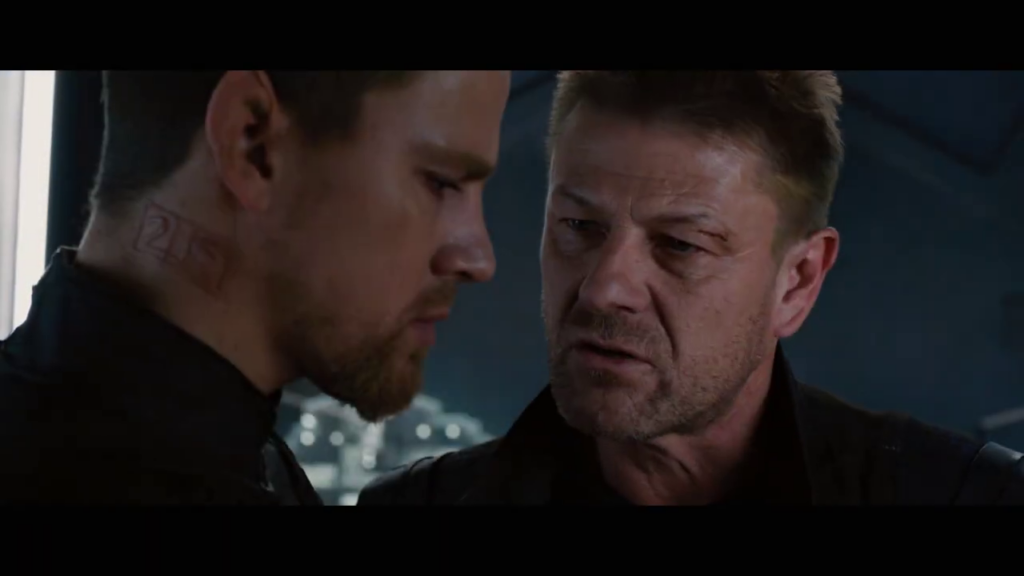
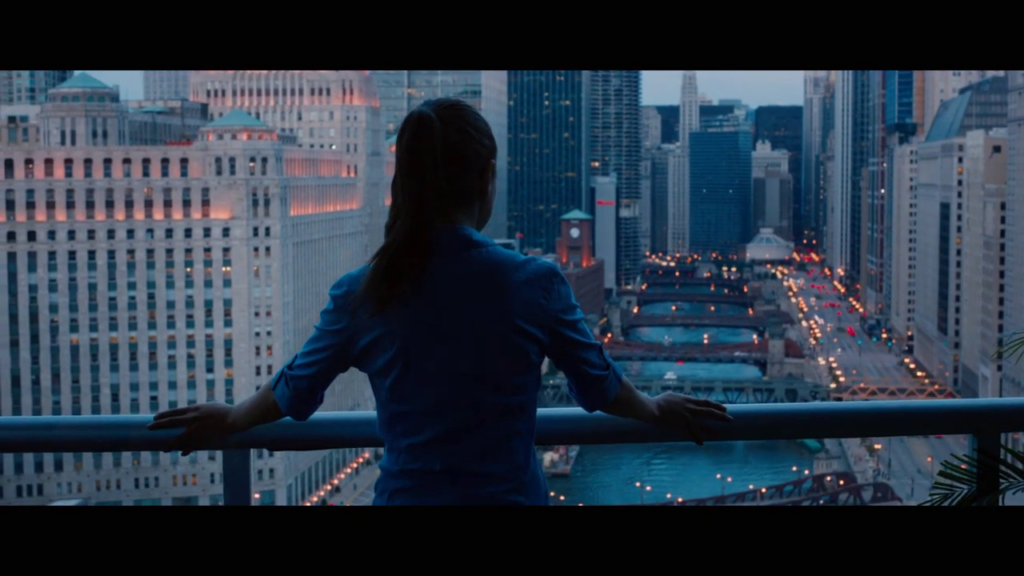
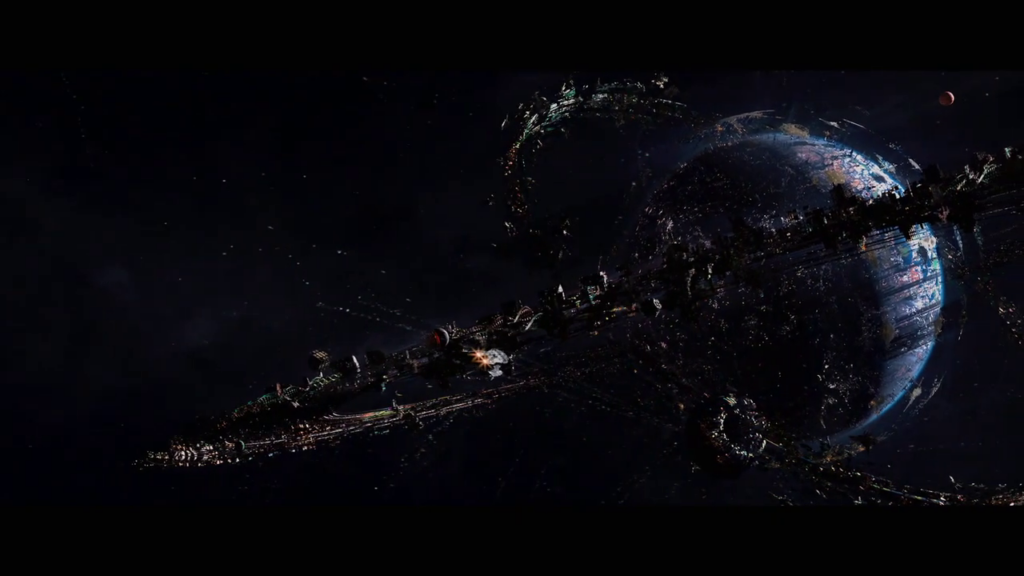
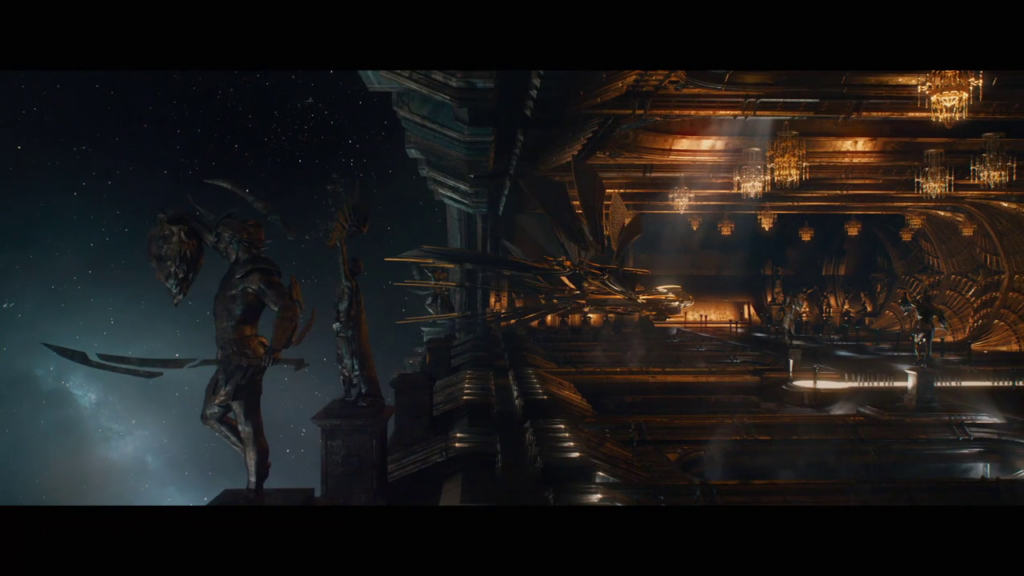
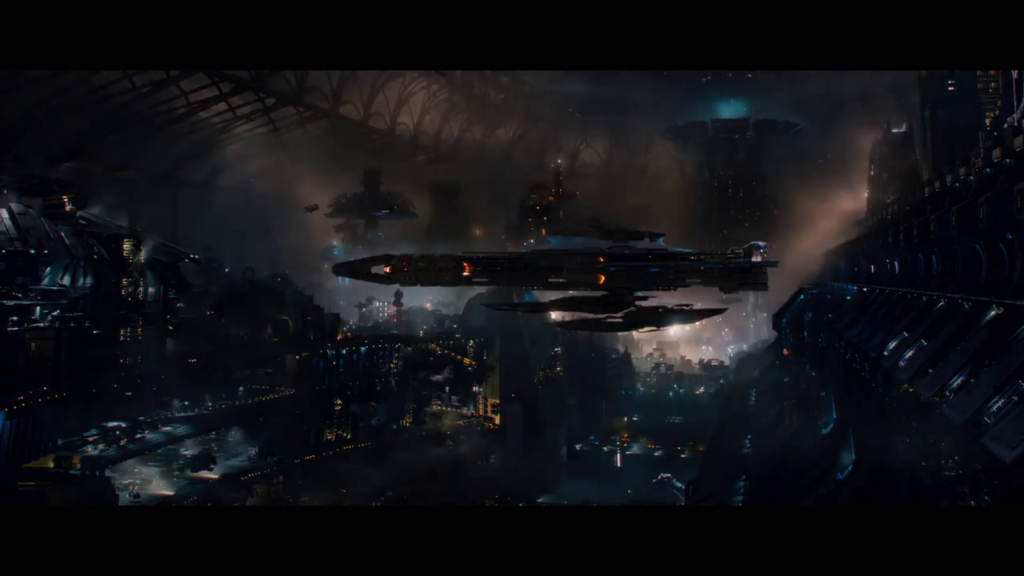
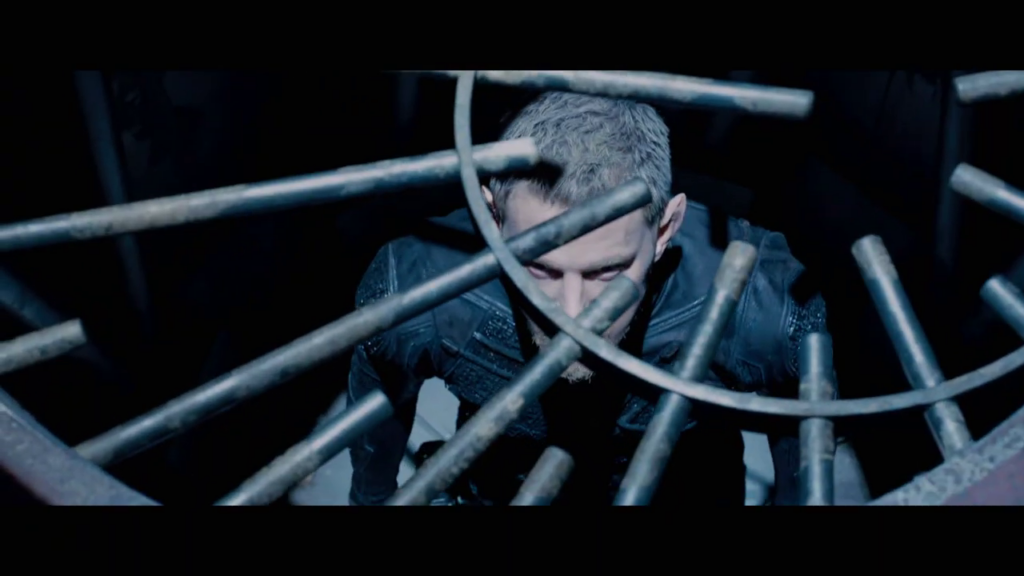
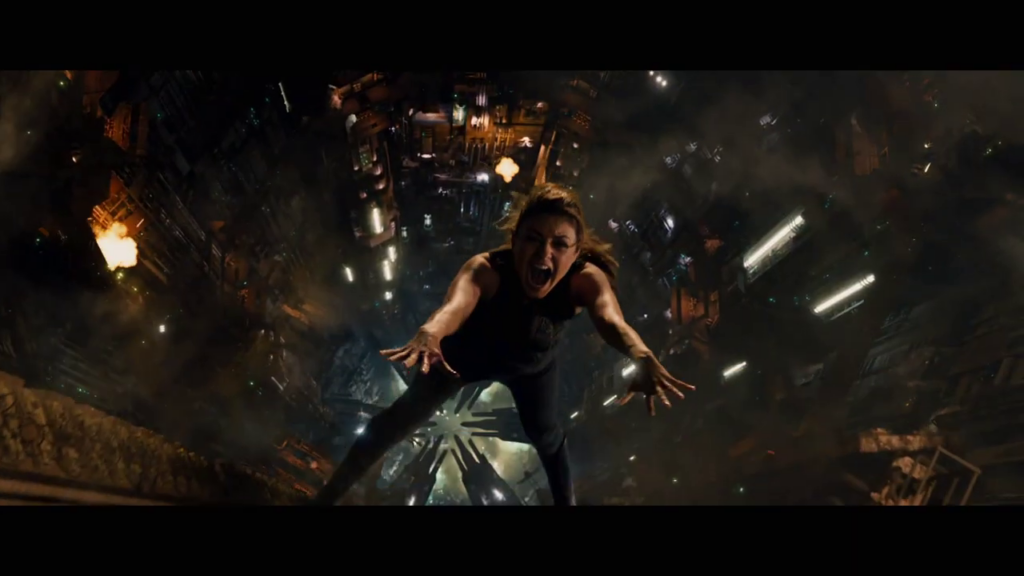
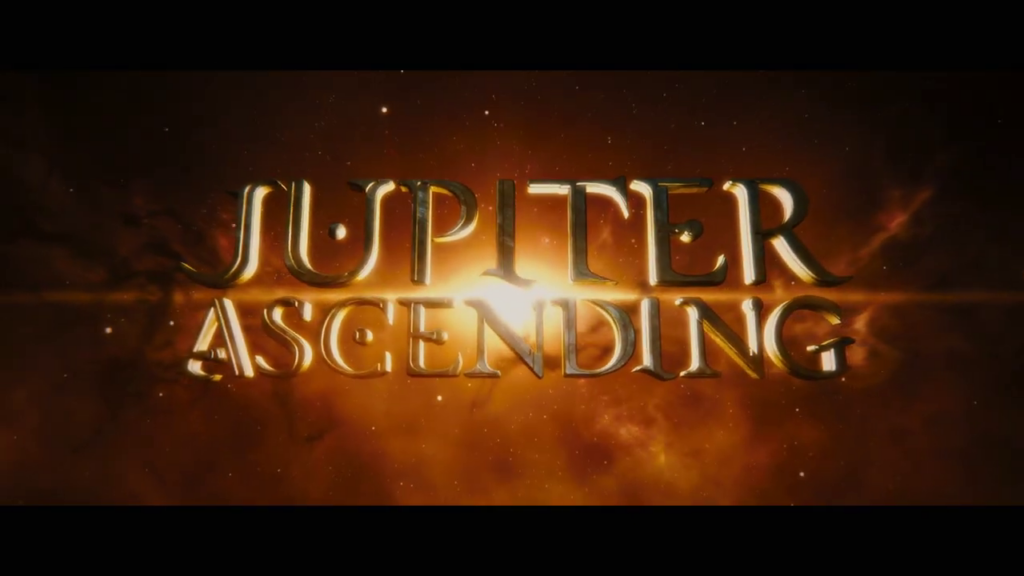
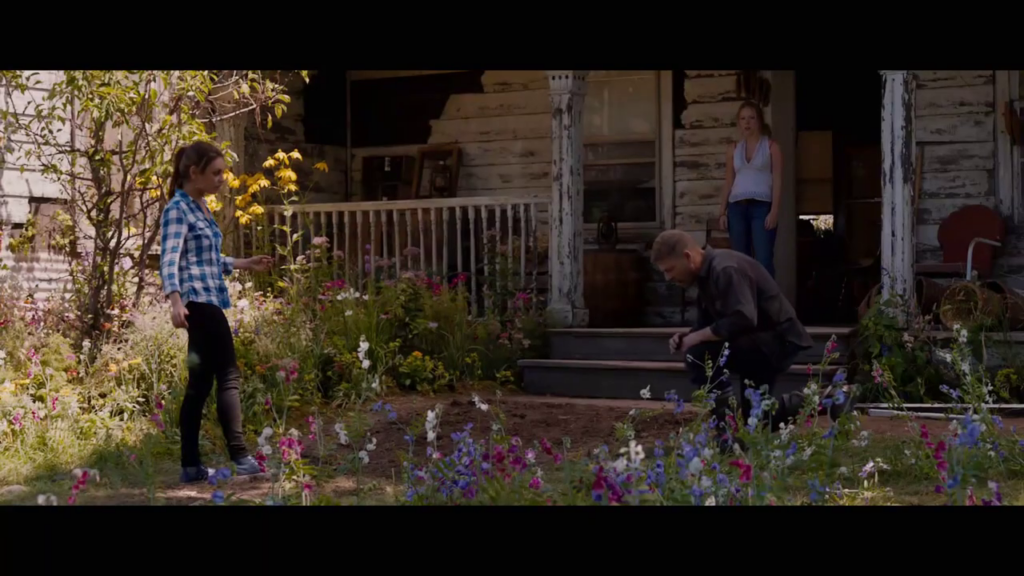
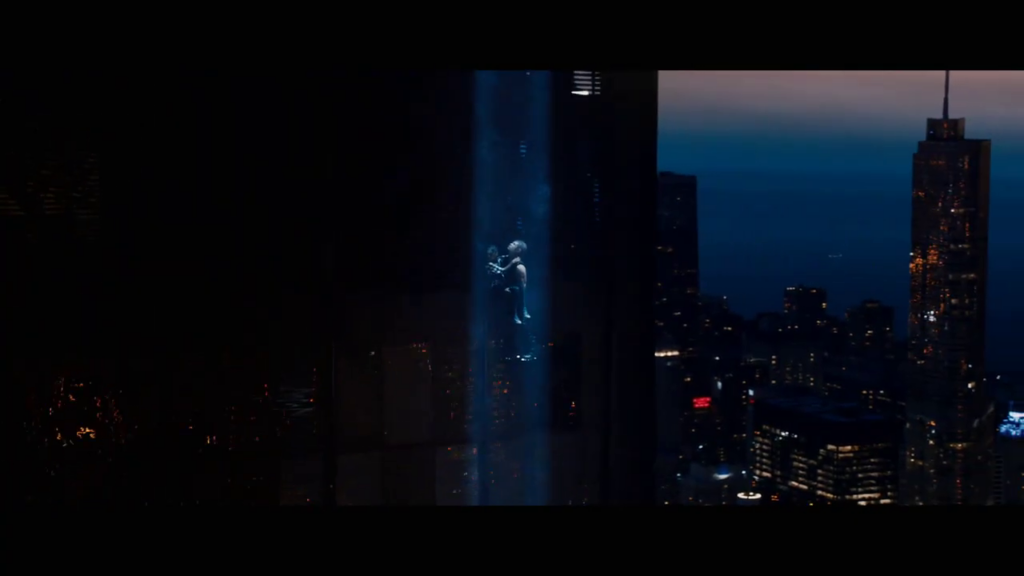
Jupiter Ascending (2015)
Film review #651
Director: Lana Wachowski, Lily Wachowski
SYNOPSIS: Jupiter leads an ordinary life when she is caught up in an interplanetary struggle when it turns out she is the genetic reincarnation of the head of the most powerful business in the galaxy, and inheritor to a vast fortune. Caught up in a battle for the inheritance of her supposed genetic double, Jupiter has to figure out who she can trust as she is kidnapped across the galaxy by those who want her inheritance for themselves.
THOUGHTS/ANALYSIS: Jupiter Ascending is a 2016 sci-film. An ordinary woman discovers that she is the genetic reincarnation of the head of the Galaxy’s most powerful empire, and is caught up in the struggle for control of it between three siblings. A simple enough story in theory, but let us set the tone here: it is bad, and borderline incomprehensible. Obviously the film is trying to capture the feeling of the main character being introduced to a galaxy which she has not known anything about, but there has to be some way for the viewer to be able to follow what’s happening too. What we get is just Jupiter being passed back and forth across different planets, spaceships and the like, with no real sense of place or establishing where in outer space we are at any given time. The film is constantly interrupted by characters having to explain things to Jupiter, meaning we have to suffer through it as well. The film obviously wants to create an expansive universe, but it really sweats the small details to the point that information overload sets in, and the explanation never applies to anything from that point on. The whole scene with the bees recognising Jupiter in the sense that bees “recognise royalty” was so unbelievably stupid I don’t know where to start: they could have just written any other way to show her status, but to do it with bees raises far too many questions: do bees not sting human monarchs as well then? It doesn’t matter, because it is never referenced again after it’s unceremonious one-time use. The film has some expansive and detailed CG effects, and the action scenes have a certain pacing, but always resolve themselves the same way: with Cain saving Jupiter at the very last second. By the fifth or sixth time it happens it’s so predictable the whole fanfare around it is just wasted. Also, Cain has these anti-gravity boots that he constantly uses in his action scenes to fly about, but apparently no one else in the galaxy has access to these things as they are left running about on the ground after him? The Wachowskis bring in their conceptual exploration of transhumanism and discovering who you are as they typically do, but there’s no depth to it or interesting exploration; it’s just more explaining minutiae that drags the film down into getting stuck on little details that don’t matter.
The film is supposed to have this overarching love story between Jupiter (Mila Kunis) and Cain (Channing Tatum), and how Jupiter has never been in love because her Mother taught her never to get close to anyone or something. There’s the germ of a narrative here, but it’s hampered by another of the film’s huge problems: the characters never becomes proper characters. Everybody in the film just feels like they can’t settle into their roles, and as such you only recognise the actors just being themselves. These are all fairly competent actors, so they know what they’re doing, they just aren’t given anything tangible or unique to work with. As such, any chemistry or character development is severely limited. By far the most obscene performance is Eddie Redmayne as the villain Balem Abrasax: he constantly talks in this low whisper which makes him impossible to take seriously. His role is so over-acted that it’s distracting from anything his character does. In fact, his character disappears for nearly all the film, so he’s not really all that important. The rest of the cast are Sean Bean being Sean Bean (although his character doesn’t actually die) and others that barely make a scratch in the film. The crew of the spaceship Aegis have a supporting role, I’m just not sure what it is, due to the constant moving around different planets and locations across space mentioned, it’s hard to keep track of just what is going on and what their motivations are.
The film does have some good CG effects and the otherworldly locations are rendered with good detail and a graspable scale. Unfortunately, that is the only positive I can really take from this mess of a film. Jupiter Ascending is a mess of poorly structured plot, ill-defined characters, and bemusing performances that nowhere near fulfil the concepts and narrative themes they are attempting to develop. Every action scene playing out essentially the same even drains the film of any entertainment value. I simply cannot recommend this film in any way.
